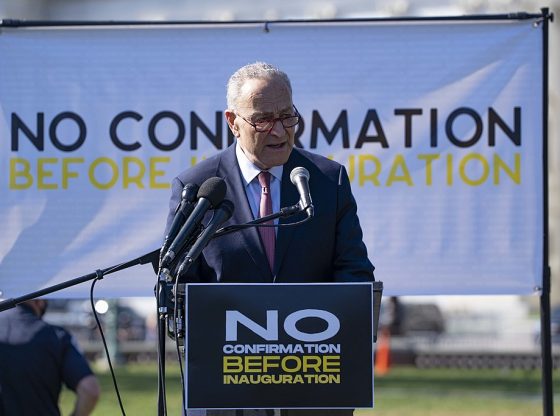The Democrats are so threatened by the possibility of another Trump presidency they will do anything to prevent it from happening. Well, almost anything, they surely won’t just let American voters decide for themselves. In all likelihood, the impeachment trial will end in a second acquittal for Trump, which is why Senate Majority Leader Chuck Schumer noted that Democrats may try and invoke the 14th Amendment to bar Trump from holding office again.
“No person shall be a Senator or Representative in Congress, or elector of President and Vice President, or hold any office, civil or military, under the United States, or under any state, who…shall have engaged in insurrection or rebellion against the same, or given aid or comfort to the enemies thereof,” the amendment reads, adding that Congress shall “have power to enforce, by appropriate legislation, the provisions.”
During a press conference, Schumer noted Democrats will make a plan accordingly depending on how the Senate trial shakes out.
I asked Schumer if Dems might bring a 14th Amendment measure forward if they don’t convict Trump – he said “we're first going to finish the impeachment trial and then Democrats will get together and discuss where we go next.”
— Nicholas Wu (@nicholaswu12) February 11, 2021
Fox News reports:
Sen. Tim Kaine, D-Va., has been on the forefront of the 14th Amendment push among Democrats, and Sen. Chris Coons, D-Del., late last month called it “intriguing.”
“What Senator Kaine is talking about is a censure resolution that would also specifically include the elements of the 14th Amendment that lead to disqualification from future office,” Coons said. “That’s intriguing to me and something I’m willing to look at the bottom line here is we have to deliver accountability for the events of January 6.”
Some interpret this amendment as fundamentally giving Congress the ability to bar a person who “engaged in insurrection” — what Trump is accused of in the article of impeachment — from office.
It would likely raise constitutional questions and slippery slope concerns that it would set a precedent neither party wants when their preferred candidate is in office.











